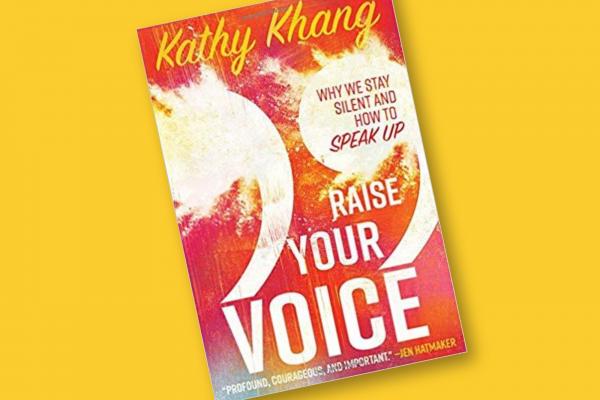I MET KATHY KHANG last summer. She joked about turning to Korean face masks and wine in her times of need; I immediately thought to myself that we’d really get along. Fortunately, her expertise in crafting both engaging conversation and knockout tweets (@mskathykhang) translates well into her latest book, Raise Your Voice: Why We Stay Silent and How to Speak Up.
Khang, who emigrated from Korea to the U.S. as a child, has worked in various settings, including newsrooms and university campus ministries. She brings her journalism and ministry experience to activism, recognizing that social justice always involves multiple intersections of race, gender, orientation, faith, politics, and more.
Raise Your Voice is an authentic diagnosis of, and antidote to, the deafening silence from many women and minorities in the workplace, politics, the world, and, most potently, in our spiritual and worship spaces. Khang crosses social, cultural, professional, and generational boundaries to create a tool useful to anyone who has ever felt either like they didn’t have a voice, or that their voice was taken from them.
Read the Full Article

